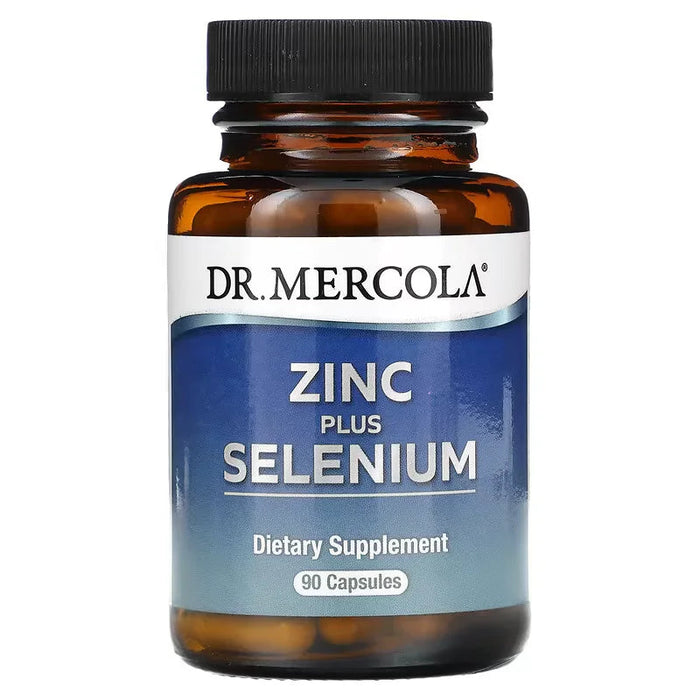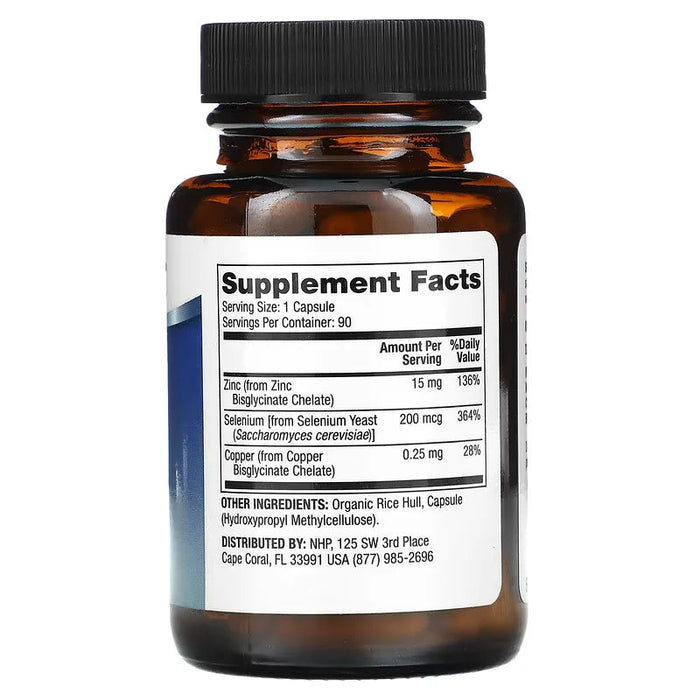Even if you’re getting enough zinc in your diet, certain conditions can keep you from absorbing and utilising this vital mineral. Stress, pregnancy, eating a vegetarian diet or one that’s high in grains, legumes, seeds and nuts, and simply being over 60 puts you at a higher risk of being deficient.
How Stress Can Lead to a Zinc Deficiency
Do you lead a stressful lifestyle? Do you find yourself sometimes feeling overwhelmed with life’s many responsibilities?
If so, you may be deficient in zinc.
Emotional stress is one of the biggest factors behind zinc deficiency.
When you’re stressed, your body shunts zinc to your brain, organs, muscles, and skin to help repair damage from stress.
If you’re unable to control the stress in your life, it can affect your adrenal health. In turn, adrenal fatigue can lead not only to a zinc deficiency, but calcium and magnesium deficiencies as well.
For a healthy balance of hormones, including your thyroid hormones, you need enough zinc.
Zinc also helps produce progesterone, cortisol, and aldosterone – hormones essential for optimal well-being and a healthy inflammatory response.
If You’re 60 or Over, You May Be at a Greater Risk for Zinc Deficiency
There are many factors that come into play as you age and your risk of zinc deficiency grows. According to one government survey, up to 45 percent of adults aged 60 and above were found to have zinc intakes below the estimated average requirements of 6.8 mg/day for senior women and 9.4 mg/day for men.
As you age, your ability to absorb and utilise zinc declines. Add that to a marginal intake, and you’re suddenly at greater risk of deficiency.
Too little bio-available zinc can mean more frequent infections and degenerative changes in your body.
Here’s something else to keep in mind: The part of your brain that houses zinc is the cerebral cortex, including your hippocampus and amygdala. This crucial region is responsible for memory, spatial ability, thinking, and emotions.
Having the right amount of zinc is absolutely necessary for your healthy brain function, memory and mood!
One of the biggest challenges with zinc and people of any age is this: Zinc isn’t stored in your body, so you must get the amount your body needs – and can absorb – each and every day!
For people over 60 especially, this can be a challenge
Too Much Zinc?
However, as beneficial as zinc may be, there’s also a real danger from getting too much zinc. Excessive amounts of zinc can reduce your immune function and also lower your “good” HDL cholesterol levels.
Plus, too much zinc can adversely affect your healthy copper levels as well as your hearing and taste.
Too little zinc and you boost your risk of a potentially health-jeopardising deficiency. Too much and you could risk serious side effects.
The form of zinc chosen for this product is zinc glycinate chelate – a high-potency source of zinc that’s been formulated for enhanced absorption.
This special form combines zinc with two glycine molecules to help it cross your intestinal wall. Plus, this unique combo helps protect the zinc from competing minerals and phytate binding.
Because it’s high-potency, the amount of zinc is reduced to 15 mg – the ideal daily dose that won’t give you too much zinc.
However Dr Mercola has also added two more valuable minerals to his Zinc Plus Selenium.
Selenium: Like Armour for Your Cells
There’s another mineral that may be just as important as zinc for healthy cells and overall health support – selenium. Selenium serves as your first line of defence against harmful free radicals.
Selenium as a trace element was discovered nearly 200 years ago. Today, it’s recognised as an essential mineral for human health.
While researchers suspect selenium may support cardiovascular health, cognitive health, and thyroid health, they do know it serves two very important roles for your cell heath:
- Provides first line defence against the build-up of harmful free radicals in your cells
- Supports normal cell health because of its powerful ability to reduce free radicals
Selenium is an active component of glutathione peroxidase, an enzyme with potent antioxidant properties.
While researchers have long believed that glutathione peroxidase was primarily responsible for selenium’s cell health support, more recent studies show there may be yet another function of selenium.
It turns out that it doesn’t matter what form of selenium you choose if you just want glutathione production.
However, for truly optimal support for cellular health, the form makes all the difference.
Selenium - The Best Form
Studies show that a specific form of standardised selenium-enriched yeast is a more effective form. It is the full protein form of selenium compared with a single amino acid form like selenomethionine, which is more commonly found in selenium supplements and in multivitamins.
This bioavailable fermented yeast (contains no unhealthy active yeast) is able to accumulate and incorporate selenium right into the protein structure. This helps to significantly reduce the bio-markers for oxidative stress in your body.
Many parts of the U.S. as well as Europe, Australia, Russia, New Zealand and China have low soil levels of selenium, increasing your risk for deficiency.
Copper: For Extra Mineral Balance
Your body has an elaborate system to maintain balance between trace minerals, especially zinc and copper.
When you get the right amount of these minerals from your diet, balance tends to take care of itself. However, whenever you supplement minerals, you tamper with nature’s delicate balance.
Supplemental minerals can easily create an imbalance of too much of one and not enough of another.
Taking a zinc supplement helps increase your zinc, but it can also reduce your copper, an important micro-nutrient.
This is especially true with zinc and copper as they compete for absorption in your gut, with copper losing out if it’s not supplemented along with zinc.
And, of course, you don’t want a copper deficiency.
Copper deficiency can lead to an abnormal low white blood cell count and increase your risk for infection. A shortage of copper can also affect your lipid metabolism and lower your “good” HDL cholesterol, putting your cardiovascular health at risk.
Every time you take a zinc supplement without copper, including a simple zinc lozenge for a cold, you could be adding to a zinc-copper imbalance in your body.
Whenever you take a zinc supplement, it is strongly recommend to take a very small amount of copper at the same time.
Zinc Plus Selenium makes that easy to do. There is a tiny, yet adequate amount of 0.250 mg of copper to the formula for balance in its preferred copper glycinate chelate form.







